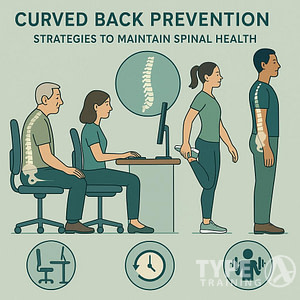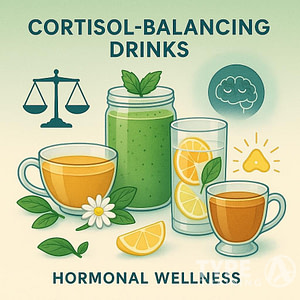Donald Trump’s selection of Robert F. Kennedy Jr. as the secretary of the Department of Health and Human Services marks a significant shift in the approach to public health and safety in the United States.
This appointment aligns with Trump’s vision to address what he perceives as a health crisis in the country, focusing on protecting Americans from potentially harmful substances in their environment and daily lives.
Kennedy’s nomination signals a potential overhaul of how the HHS operates, with an emphasis on transparency and scientific research.
Popular posts:
The move is part of a broader initiative dubbed “Make America Healthy Again,” which aims to tackle chronic diseases and improve overall public health.
This approach may lead to changes in how the department regulates chemicals, pollutants, and food additives, among other areas that impact public health.
Key Takeaways
- Trump’s HHS pick signals a focus on addressing perceived environmental health threats
- Kennedy’s appointment may lead to changes in HHS operations and research priorities
- The “Make America Healthy Again” initiative aims to combat chronic diseases in the U.S.
Key Functions of the Health and Human Services Department
The Department of Health and Human Services (HHS) plays a vital role in safeguarding the well-being of Americans.
This expansive federal agency oversees 11 key organizations, each with specific responsibilities.
The Food and Drug Administration (FDA) regulates medical products, ensuring their safety and efficacy. You can rely on the Centers for Disease Control and Prevention (CDC) to monitor and respond to public health threats. Meanwhile, the National Institutes of Health (NIH) drives medical research, advancing scientific understanding.
HHS manages critical federal programs:
- Medicare
- Medicaid
- Affordable Care Act implementation
Key responsibilities include:
- Enforcing health-related laws
- Coordinating emergency responses (e.g. pandemics)
- Promoting public health initiatives
Through these efforts, HHS strives to enhance healthcare access, improve medical treatments, and foster a healthier society for all Americans.
RFK’s Past Criticisms of Health Agencies
Robert F. Kennedy Jr. has been outspoken about his views on federal health agencies.
You may be aware of his strong opinions regarding the Food and Drug Administration (FDA) and Centers for Disease Control and Prevention (CDC). He believes these organizations have strayed from their core missions.
Kennedy claims the FDA has suppressed various health-promoting substances and practices. These include:
- Psychedelics
- Peptides
- Stem cells
- Raw milk
- Hyperbaric therapies
- Certain medications (e.g. ivermectin, hydroxychloroquine)
- Vitamins and nutraceuticals
- Clean foods
- Natural approaches (sunshine, exercise)
He argues that the FDA favors patentable pharmaceuticals over these alternatives. Kennedy has called for transparency and reform within the agency.
Regarding the CDC and FDA, Kennedy alleges they are too closely aligned with industry interests. He suggests this leads to compromised policies that may not prioritize public health.
Vaccines have been a particular focus of Kennedy’s criticism. He has made controversial statements questioning vaccine safety and efficacy. These views contradict the scientific consensus on immunization.
If elected, Kennedy has indicated he would scrutinize FDA employees’ potential conflicts of interest with pharmaceutical companies. He envisions making this information public to increase transparency.
Despite his criticisms, Kennedy has stated he would not eliminate access to vaccines. He has expressed interest in studying vaccine safety and efficacy further.
Kennedy sees potential in the Department of Health and Human Services’ workforce. He aims to reduce what he terms “corporate capture” of health agencies. His goal is to refocus these organizations on improving public health outcomes.
RFK Jr.’s Key Health Initiatives
Improving Public Water Systems
RFK Jr. aims to transform public water systems. He advocates for removing fluoride from drinking water, claiming it’s unnecessary and potentially harmful.
While fluoride has long been praised for improving dental health, concerns have arisen about excessive intake from multiple sources. The U.S. Public Health Service has already recommended lowering fluoride levels in water.
Though federal control is limited, RFK Jr. plans to advise local water districts on the latest scientific findings.
Reforming Nutritional Guidance
You’ll see changes in nutritional departments if RFK Jr. has his way. He’s critical of current FDA nutrition divisions, suggesting they’re not adequately protecting public health.
His plan involves restructuring these departments to better serve the American people’s nutritional needs.
Addressing Food Additives
RFK Jr. takes a strong stance against certain food additives. He’s particularly concerned about artificial ingredients in processed foods, comparing U.S. products unfavorably to their international counterparts.
For example, he’s highlighted differences between U.S. and Canadian versions of popular cereals, noting the use of natural versus artificial colorings.
This position aligns with recent legislative actions, such as California’s ban on specific food additives starting in 2027. While reducing ultra-processed foods is generally supported by health experts, blanket statements against all “chemicals” in food can be overly simplistic. A more nuanced approach focusing on whole foods and cooking skills might be more effective.
Tackling Environmental Toxins
Environmental toxin reduction is a cornerstone of RFK Jr.’s health platform. He advocates for:
- Comprehensive testing of toxins in food, water, and air
- Ensuring access to clean, safe living conditions for all Americans
- Eliminating harmful chemicals from the environment
While these goals sound promising, specific details on implementation and targeted chemicals are currently lacking.
Transforming Farming Practices
RFK Jr. proposes a significant overhaul of U.S. farming practices. His plan includes:
- Revising crop subsidies
- Promoting sustainable and regenerative farming
- Banning certain agricultural chemicals
- Encouraging production of natural, unprocessed foods
He argues that current agricultural policies contribute to health issues by favoring processed foods and harmful farming practices. However, critics warn that such dramatic changes could have far-reaching consequences for farmers, rural communities, and agricultural innovation.
Revamping SNAP Benefits
The Supplemental Nutrition Assistance Program (SNAP) is also in RFK Jr.’s sights. His proposed changes include:
- Restricting the use of SNAP benefits for soda and processed foods
- Redirecting funds away from sweetened drinks (which currently account for 9% of SNAP spending)
- Promoting healthier food choices for low-income Americans
RFK Jr. argues that taxpayer money shouldn’t subsidize foods that may harm public health. This proposal aims to address nutritional disparities and promote better health outcomes among SNAP recipients.
RFK Jr’s Froot Loops Controversy: Examining US vs Canadian Ingredients
Robert F. Kennedy Jr., newly appointed as health secretary, has sparked debate by questioning the ingredients in U.S. Froot Loops.
He claims the American version contains more artificial additives than its Canadian counterpart. This assertion has drawn attention to food ingredient regulations and their potential health impacts.
Key points of the controversy include:
- Red Dye 40: Present in U.S. Froot Loops, absent in Canadian version
- Ingredient count: U.S. version allegedly has more ingredients
- Regulatory differences: Varied food additive rules between countries
It’s important to note that RFK Jr.’s statements have been scrutinized.
While he claimed Canadian Froot Loops have only three ingredients, they actually contain 17. This discrepancy highlights the need for careful fact-checking in discussions about food health.
When considering cereal choices, you might want to:
- Read ingredient labels carefully
- Compare products across brands
- Research any unfamiliar additives
Remember, a balanced diet is key to health. While cereal can be part of a nutritious breakfast, it’s just one element of your overall food choices.
Will RFK’s health proposals become reality?
Robert F. Kennedy Jr.’s ambitious plans for transforming America’s health landscape face significant hurdles. His confirmation as Secretary of Health and Human Services is far from guaranteed.
Even if successful, implementing his ideas would be an uphill battle.
Many of Kennedy’s proposals would require substantial changes to existing government structures and policies. For instance, altering the employment protections of federal workers is not a simple task.
The Food and Drug Administration (FDA) presents a particular challenge, as nearly half its budget comes from user fees paid by pharmaceutical and medical device companies. This funding structure provides a layer of insulation for FDA employees.
Even if Kennedy managed to replace a large portion of FDA staff, finding qualified replacements with the necessary technical expertise would be extremely challenging. The complexities of health policy and regulation require specialized knowledge that’s not easily replaced.
Kennedy’s goal of reducing chronic diseases within two years is unrealistic. Health outcomes are influenced by a myriad of factors, including:
- Genetics
- Environment
- Lifestyle choices
- Access to healthcare
- Socioeconomic status
These elements interact in complex ways that can’t be quickly or easily changed through policy alone.
The effectiveness of medical treatments can vary widely between individuals. Two people with the same condition may respond very differently to the same medication. This highlights the need for personalized approaches to healthcare, rather than one-size-fits-all solutions.
Some key challenges Kennedy would face include:
• Navigating conflicts of interest in health policy
• Addressing the influence of pharmaceutical companies
• Tackling misinformation in health communications
• Balancing corporate interests with public health needs
• Improving transparency in healthcare decision-making
• Preparing for future pandemics
Common Questions About the Health Initiative
What does the plan include for public health?
The health initiative aims to improve public health through various measures. These include promoting preventive care, increasing access to healthy foods, and supporting community health programs.
Efforts focus on reducing chronic diseases by addressing diet and lifestyle factors.
How has the campaign affected health policies?
The campaign has influenced discussions around healthcare reform. It has pushed for policies that prioritize disease prevention and wellness programs.
Some proposed changes involve restructuring healthcare systems to better address chronic conditions and their underlying causes.
What importance is given to diet and physical activity?
Nutrition and exercise are central to the initiative. The plan emphasizes:
- Improving access to nutritious foods
- Educating the public on healthy eating habits
- Promoting regular physical activity
- Creating environments that support active lifestyles
These elements are seen as crucial for preventing chronic diseases and reducing healthcare costs.
Who are the main supporters of the movement?
Key figures advocating for the health initiative include political leaders and health experts.
Robert F. Kennedy Jr. has been a prominent voice in the movement, particularly in connection with potential healthcare policy changes.
How has the agenda been discussed in politics?
The health initiative has become a topic of political debate. It has been discussed in:
- Campaign platforms
- Policy proposals
- Healthcare reform discussions
Politicians have used the slogan to outline their visions for improving national health and reducing healthcare costs.
What are the initiative’s long-term health improvement goals?
The long-term objectives of the health initiative include:
- Reducing rates of chronic diseases
- Lowering healthcare costs
- Improving overall life expectancy
- Enhancing quality of life for all Americans
These goals aim to create a healthier population. They also aim to build a more sustainable healthcare system over time.













